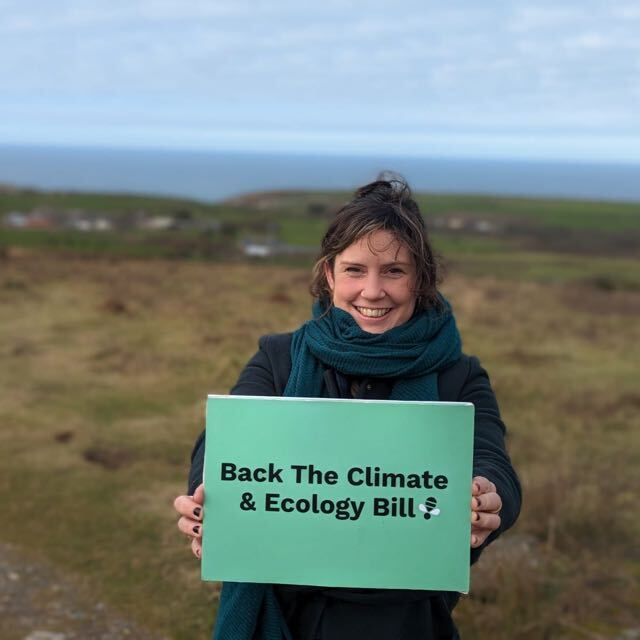Earlier this year, on 27 June 2022, Defra (Department for Environment Food and Rural Affairs) closed its consultation on the environmental targets required by the Environment Act 2021. Enacted last year, the Environment Act requires the Secretary of State to set long-term targets in relation to various environmental areas. In particular, targets are required to be set in priority areas including air quality, water, biodiversity, resource efficiency and waste reduction. Targets are also required for fine particulate matter (PM2.5) and species abundance.
Defra published proposed targets backed-up by reports and impact assessments, and the consultation invited responses from interested members of the public. Interested groups and individuals, including companies, NGOs, academics and scientists, had until from 16 March 2022 until Monday this week, when the deadline closed, to comment on Defra’s proposed targets.
Zero Hour has responded to the consultation, urging the UK Government to be much bolder.
This consultation was on the first set of targets that have been proposed in accordance with the Environment Act 2021. According to gov.uk, the Act aims to ‘deliver the most ambitious environmental programme of any country on earth’, through its introduction of new legally binding targets. Some of its other aims include to help the UK ‘transition to a more circular economy, incentivising people to recycle more’ and a ‘target to halt the decline of nature by 2030’. The Act also created the Office for Environmental Protection, a new public body, to help further these aims.
Defra’s website states the proposed targets they have made are ‘beyond the legal minimum that [they] are required to set’, yet various organisations who have published their responses suggest that some of the targets do not go far enough. For example, the Royal College of Physicians, responded to the Government’s long-term targets for reducing levels of fine particulate matter in the air by stating that the Government should ‘seek to achieve the annual mean concentration target and population exposure reduction target by 2030 instead of 2040’, and that the annual mean concentration for fine particulate matter (PM2.5) in the air should be reduced ‘in line with WHO’s updated air quality guideline values’, to 5 micrograms per cubic metre across England, rather than the 10 micrograms per cubic metre proposed as a target by the Government.
Similarly, but in relation to water targets, (environmental charity) River Action UK criticised the Government’s proposed target for abandoned metal mines, stating it is ‘less ambitious than the Water Framework Directive and only covers a very small proportion of the substances of concern.’
With regard to biodiversity targets, (conservation organisation and Zero Hour ally) The Wildlife Trusts submitted a response disagreeing with the Government’s proposed target of a 10% increase for long-term species abundance by 2042 compared to 2030 levels, proposing instead that this should be increased to 20% by 2042 compared to 2022 levels. The Wildlife Trust’s Youth Ambassadors handed in a petition signed by 60,000 people, urging the UK Government to do more.
The public responses will hopefully aid the Government in coming to reasonable proposals for targets. It is envisaged that the targets should be laid down as statutory instruments later this year, by 31 October 2022, and will become law once approved by Parliament.
At Zero Hour, we have been pushing the Government to go further when it comes to the proposed targets.
In our submission, we’ve highlighted the following five key area for Defra to consider:
- Ensuring that all environmental targets, policies, plans and strategies are designed to deliver joined-up action to protect and restore ecosystems that contain crucial carbon sinks and stores. UK Government plans must focus on radical land and sea use change in order to mitigate the worst impacts of climate change.
- Reduce the UK’s ecological footprint, domestically and globally. This includes reducing livestock production and the consumption of meat urgently in order to reduce methane emissions and to release enough land for nature to repair and flourish.
- Ensure that biodiversity loss has been halted and reversed by 2030, against a baseline of 2020, in line with the Leaders’ Pledge for Nature—endorsed by heads of state and government from 93 countries, including the Prime Minister (as above).
- Create robust and well connected natural infrastructure across all UK nations, to enhance conservation methods which often designate marginal land for protecting or restoring isolated pockets of wildlife.
- Enact the Climate and Nature Bill to deliver an ambitious, science-led action plan—that aligns UK policy with international environmental targets—and demonstrates global leadership in tackling the climate-nature crisis.


